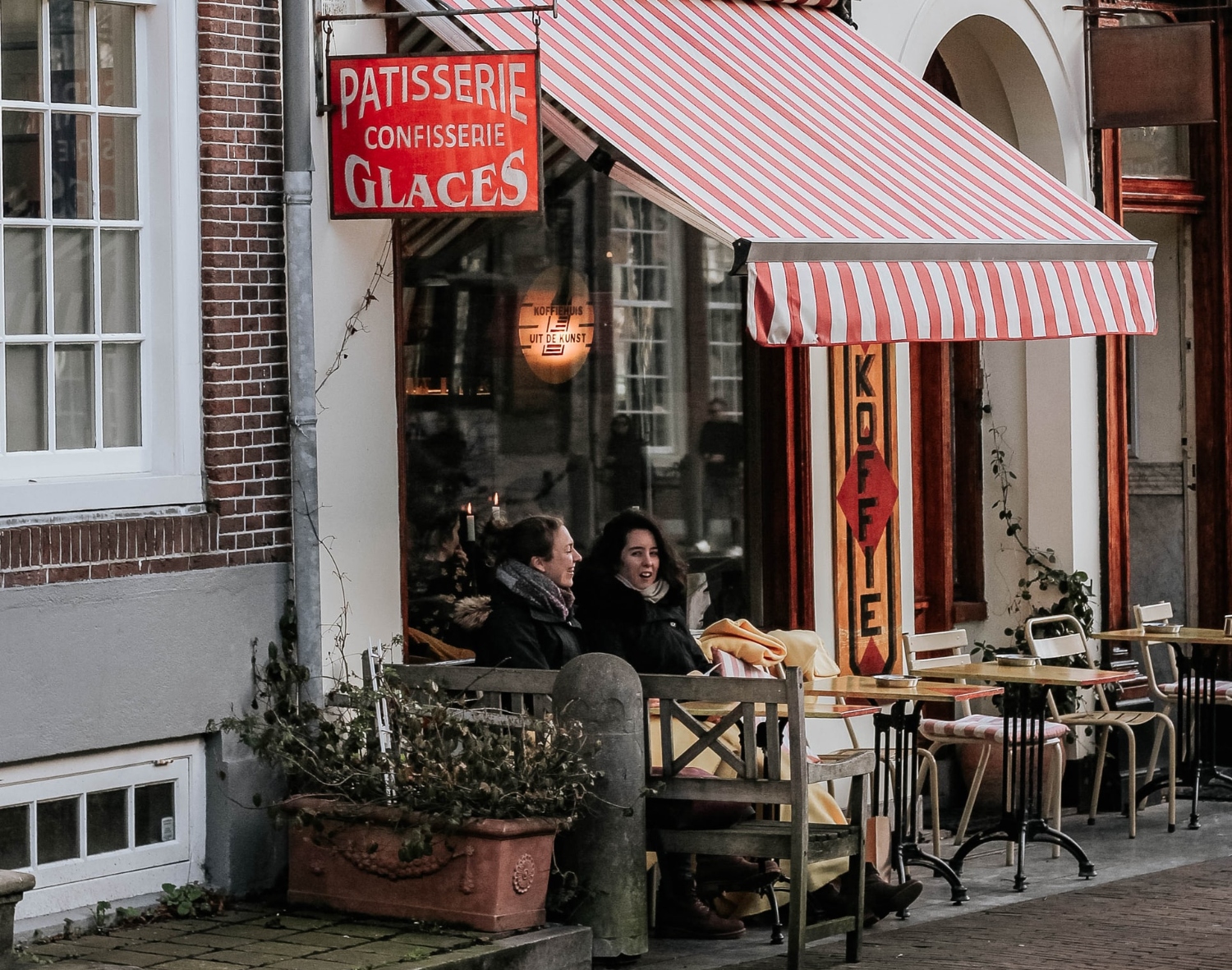Even if you don’t even know how to say hello in other languages, these most common French phrases will at least get you through the door of your favorite French restaurant.
Learning French (especially as a native English speaker) is a little daunting. Unlike Germanic languages, French draws from Latin, the same as most romantic languages. Luckily, you don’t need to learn every word and phrase before heading to a French-speaking nation.
Common French Greetings
Some of the most common French phrases are greetings. Greetings are commonly the most-used phrases when traveling in France. Most travelers claim that after greeting someone, they often default back to their native languages (as long as the French speaker knows said language).
If your native language is English and you are heading to a major city where French is widely spoken, there’s a good chance you’ll be able to bypass French altogether — as long as you approach the French speaker with French greetings.
Hello In French
Some common greetings include:
Good day: Bonjour
Hi: Salut
Hey there: Coucou
Hello: Allô
Depending on how well you know the person, you could shake hands or offer a kiss on each of his cheeks.
French Pleasantries
Pleasantries in French-speaking countries are much more important than in countries where Germanic languages are spoken. You need to acknowledge the other person in a positive manner — no matter your relationship.
One example of when Americans get this wrong is when entering a business. In the states, we always assume ‘the customer is always right’ and ‘it’s the salesperson’s job to greet me.’
In many French-speaking countries, it’s polite not only to say hello to a salesperson when you enter a business — but you should also ask, “How are you?” as well. Entering a store and shopping without acknowledging the proprietor is considered extremely rude.
Hello, how are you?: Bonjour, comment allez-vous?
How is your mother?: Comment va ta mère?
Thank you very much: Merci beaucoup
You’re welcome: Je vous en prie
In addition to asking how someone is doing, you might even ask how that person’s family is that day, too.
Most Common French Phrases for Traveling
One of our best tips for learning a new language? Go with the most common phrases first. When it comes to traveling, you’ll also want to have a few words in your arsenal to get you from place to place — and know what to say at a hotel or Airbnb. These most common French phrases for traveling will help get you in, around and back out of any French-speaking country.
Transportation
Getting around a French-speaking country is harder when you don’t have the right vocabulary to get you where you want to go. You’ll want to memorize these most common French phrases and French words if you’re planning on traveling without an interpreter.
Train: Train
Plane: Avion
Airport: Aéroport
Car: Voiture
Van: Camionette
Bus: Autobus
Boat: Bateau
Ferry: Ferry
Taxi: Taxi (easy one, right?)
Gas station: Station-essence
Train station: Gare
Subway: Métro
Lodging
These days, most hotels hire English-speaking staff. English has become the universal language of travel, so you can probably check in to your hotel without any problems.
But if you’re staying in a homestay or an Airbnb, you’ll want to make note of a few of these vocab words — or download a translator app that can easily translate text to speech, such as the Vocre app, available on Google Play for Android or the Apple Store for iOS.
French Lodging Phrases
Hello, I have a reservation: Bonjour, j’ai un réservation.
I’d like a no-smoking room: Je voudrais une chambre non-fumeur.
What time is check-out?: A quelle heure dois-je libérer la chambre?
French Lodging Vocabulary
Suitcase: Valise
Bed: Lit, couche, bâti
Toilet paper: Papier toilette
Shower: Douche
Hot water: D’eau chaude
Eating at a Restaurant
Luckily, most waitstaff in large, French-speaking cities understand English. But again, it’s considered good manners to try to speak french to your waiter before throwing in the towel and defaulting to English.
Table for one, please: Bonjour, une table pour une, s’il vous plaît.
I need a menu please: La carte, s’il vous plaît?
Water, please: Une carafe d’eau, s’il vous plaît?
Restroom: Toilettes or WC
French Figures of Speech
Just like with every language, French has its own figures of speech. It can be extremely confusing (and somewhat comical) to try to figure out what people are saying!
We have eyes bigger than our stomaches: Nous avions les yeux plus gros que le ventre.
The ticket cost me an arm: ce billet m’a coûté un bras.
(In English, we say ‘an arm and a leg,’ but it’s just an arm in French!)
To get broken up with (or dumped): Se faire larguer.
Formal Vs. Informal French Phrases
In French, it’s common to use slightly different words and phrases when you’re speaking to a stranger than you would when speaking to your best friend.
The word for ‘you’ in French is ‘tu’ if you’re speaking to someone you know. If you’re speaking to someone you want to show respect to or a stranger, you would use the formal word for ‘you,’ which is ‘vous.’
Heading to France last minute? Check out our list of the best travel apps for last-minute travel! Headed to other destinations? Find out how to say common Chinese phrases or common Spanish phrases.





